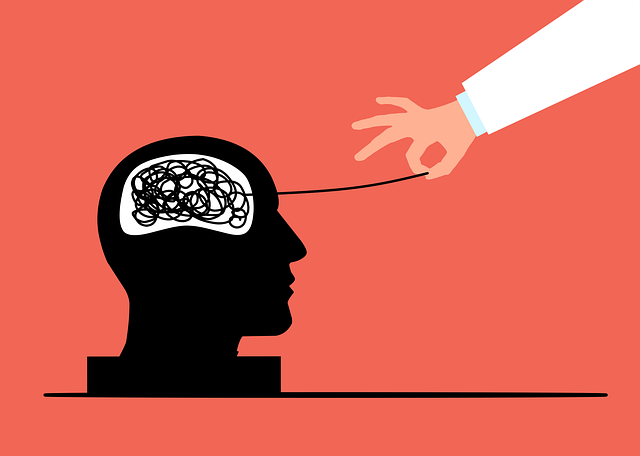Mental health is a cornerstone of overall well-being, impacting daily life and relationships. While physical health often gets more attention, digital tools like mindfulness apps play a growing role in supporting mental wellness. These apps, including those offering anxiety relief and confidence boosting, provide accessible resources for stress management. For Conduct Disorder Treatment, combining traditional therapy methods like Broomfield Conduct Disorder Therapy with app-based solutions can empower individuals to actively manage their emotional well-being through interactive games, mindfulness exercises, and personalized tracking. Continuous user engagement and feedback loops are crucial for app success, ensuring updates meet preferences and address issues like Broomfield Conduct Disorder Therapy while enhancing community connection.
In today’s digital age, mental wellness apps are gaining traction as powerful tools for supporting individuals facing various challenges. This article explores the development of an app focused on Broomfield Conduct Disorder Therapy, delving into the intricate relationship between mental health and daily life. We’ll examine the potential of digital interventions in therapy, highlighting benefits and navigating challenges. Additionally, we provide insights into creating effective apps, user engagement strategies, and continuous improvement techniques post-launch.
- Understanding Mental Health and its Impact on Daily Life
- The Role of Digital Tools in Therapy: Benefits and Challenges
- Developing an Effective App for Conduct Disorder Treatment
- Post-Launch: User Engagement, Feedback, and Continuous Improvement Strategies
Understanding Mental Health and its Impact on Daily Life

Mental health is a cornerstone of overall wellness, influencing how we think, feel, and act in our daily lives. It encompasses our emotional, psychological, and social well-being, affecting our ability to cope with stress, make choices, and relate to others. While many focus on physical health, recognizing the significance of mental wellness is crucial for leading a fulfilling life. Issues like anxiety, depression, and even conduct disorders, such as Broomfield Conduct Disorder Therapy, can significantly impact individuals’ day-to-day functioning.
Understanding these challenges is essential in developing effective strategies for burnout prevention among healthcare providers who play a vital role in supporting mental health. Moreover, apps designed to offer Anxiety Relief and boost Confidence have become valuable tools in managing stress and promoting positive mental health. These interventions cater to a wide range of users, ensuring accessibility and discreet support for those navigating the complexities of their emotional well-being.
The Role of Digital Tools in Therapy: Benefits and Challenges

Digital tools are increasingly playing a pivotal role in therapy and mental wellness, offering both benefits and challenges. Apps designed for mindfulness meditation, for instance, can provide users with accessible resources to support their mental health. Features such as guided meditations, stress-reduction techniques, and mood tracking can empower individuals to take an active role in managing their well-being, complementing traditional Broomfield Conduct Disorder Therapy approaches.
However, while these digital tools have the potential to enhance access to care, they also present challenges. Ensuring effective delivery of evidence-based practices through apps requires careful consideration. For example, Burnout Prevention Strategies for Healthcare Providers often emphasize the importance of human connection and nuanced understanding, which may be harder to replicate in a digital format. Privacy concerns and the need for secure data handling are additional factors that developers must navigate to ensure ethical use and protect user information.
Developing an Effective App for Conduct Disorder Treatment

Developing an app for Conduct Disorder Treatment requires a nuanced approach to address this complex mental health challenge effectively. Apps can serve as powerful tools in supplementing traditional Broomfield Conduct Disorder Therapy methods, offering accessible and engaging support for individuals dealing with conduct issues. By integrating evidence-based practices, these digital interventions can target key areas such as emotional regulation, impulsivity management, and social skills development.
Features like interactive games focused on emotional intelligence, mindfulness exercises, and personalized tracking tools can empower users to monitor their progress. Additionally, incorporating features for connecting with support networks, accessing stress management workshops, or receiving motivational reminders can foster a sense of community and accountability. Effective apps not only aid in symptom reduction but also promote self-awareness and coping strategies, ultimately enhancing the overall well-being of individuals seeking conduct disorder treatment.
Post-Launch: User Engagement, Feedback, and Continuous Improvement Strategies

After an app is launched, user engagement becomes a key indicator of its success. Strategies to enhance continuous improvement should focus on gathering feedback from users. This can be achieved through in-app surveys, reviews, and ratings. By understanding what features resonate with users and which areas need enhancement, developers can tailor updates to meet their needs. For instance, many mental wellness apps incorporate tools for stress management workshops organization, catering to users seeking anxiety relief.
Regular feedback loops enable app developers to address issues like Broomfield Conduct Disorder Therapy more effectively. Incorporating user suggestions for new features or content related to Mental Health Awareness can significantly boost engagement. This iterative process ensures the app remains relevant and valuable, fostering a sense of community among users who rely on it for their daily mental wellness routines.
Mental wellness apps have the potential to significantly impact access to care, particularly for conditions like conduct disorder. As shown by Broomfield Conduct Disorder Therapy examples, digital tools can offer personalized, engaging, and accessible interventions. However, developers must carefully navigate challenges related to data privacy, clinical efficacy, and user experience to ensure these apps provide genuine benefits. Continuous improvement strategies, grounded in user feedback, are essential for creating lasting value in this rapidly evolving field.














